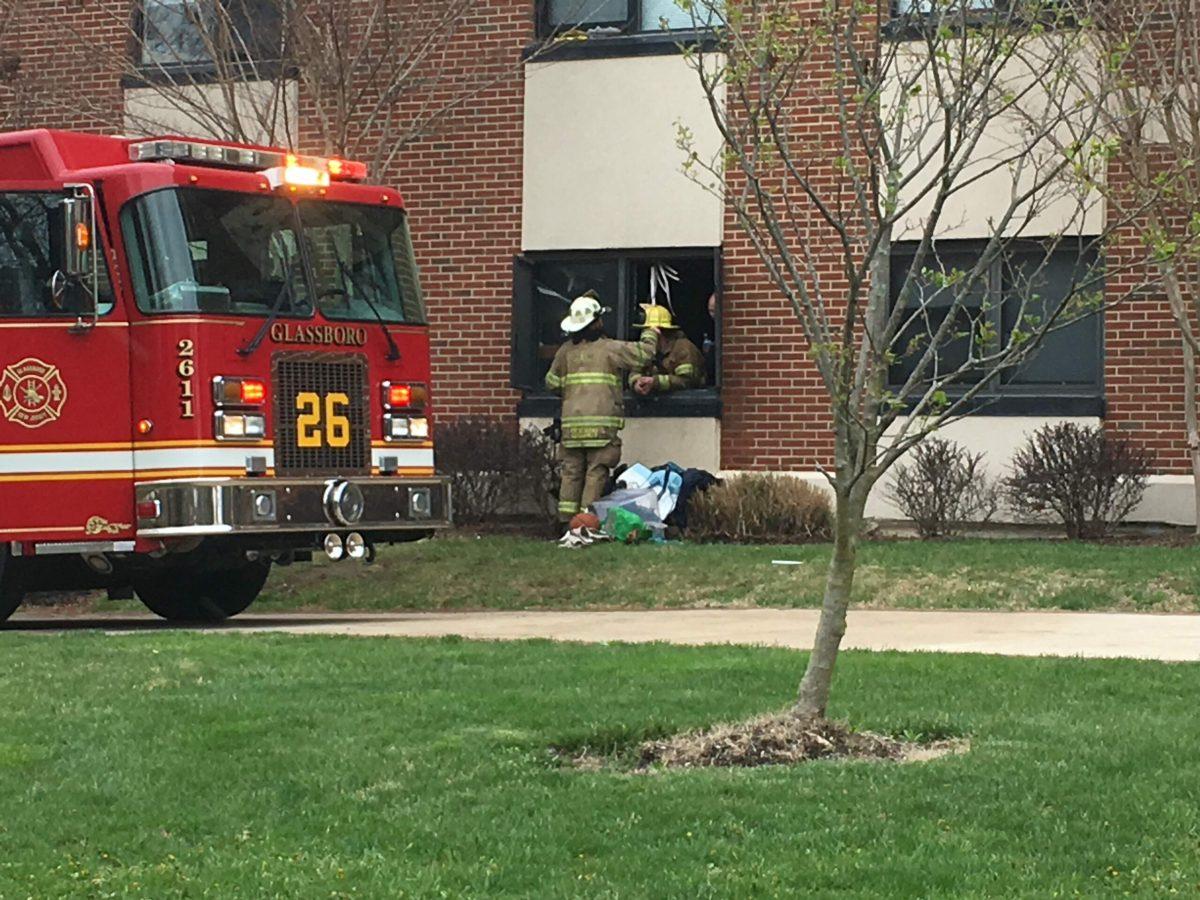Last week’s fire in Mimosa Hall needs to be a wake-up call for residents who choose to cover their ears and wait out the alarms: get out.
Fortunately, no one was hurt as a result of the fire or the smoke produced by that fire, but the university has since been extremely forward in emails to students about the potential for even small fires to kill.
The volume of fire alarms at Rowan is a topic of many conversations on campus. The seemingly high frequency – as yet unverifiable by public safety documentation available to reporters – has even inspired webpages and Twitter accounts dedicated to keeping track of the number of alarms sounding in several of the residence halls. Students have been known to cover smoke detectors in their rooms to keep them from sounding (often with plastic or styrofoam cups) or taping over the speaker on the alarm in their room to muffle the sound when it rings. But Mimosa’s fire needs to signal to residents just how unpredictable the alarm’s cause can be.
Most of the time, in fact probably something like 99 percent of the time, the fire alarm is set off by something other than a fire. Why Rowan’s alarm system is so fickle that it can be triggered by steamy showers or barely simmering stove-top dinners is a good question. But the 37 fire alarms this year in Holly Pointe Commons (according to howmanyfirealarmsathollypointe.com), the campus’ newest residence hall, show that it has nothing to do with age. It’s not hard to sympathize with the aggravation caused by constant alarms that end up having been caused by a hair straightener or an ill-equipped chef. And it’s equally easy to understand how that aggravation could lead a student or resident to deciding it would be easier most nights to just ride out the alarm in their bed.
Mimosa’s fire needs to be a reminder, though, that while it usually isn’t, any one of these alarms could be caused by a real fire, which poses a real threat to your safety. Resident Assistants may try to convince you to head outside to avoid a disciplinary hearing, and public safety may threaten to send a fine your way, but at the end of the day it’s your safety that should motivate you to get as far away from a building as possible when the alarm is activated.
No one was hurt in Mimosa, and that might make it easy to shrug the whole event off like it’s no big deal, no cause for alarm or no reason to change your behavior. But the next fire might be bigger, might spread faster or might just end up closer to where you live. That’s why you need to take the risk seriously, and get out of any building where the alarm is sounding – for your safety.
For questions/comments about this story, email [email protected] of find us on Twitter @TheWhitOnline
























































































































































!["Working with [Dr. Lynch] is always a learning experience for me. She is a treasure,” said Thomas. - Staff Writer / Kacie Scibilia](https://thewhitonline.com/wp-content/uploads/2025/04/choir-1-1200x694.jpg)










































